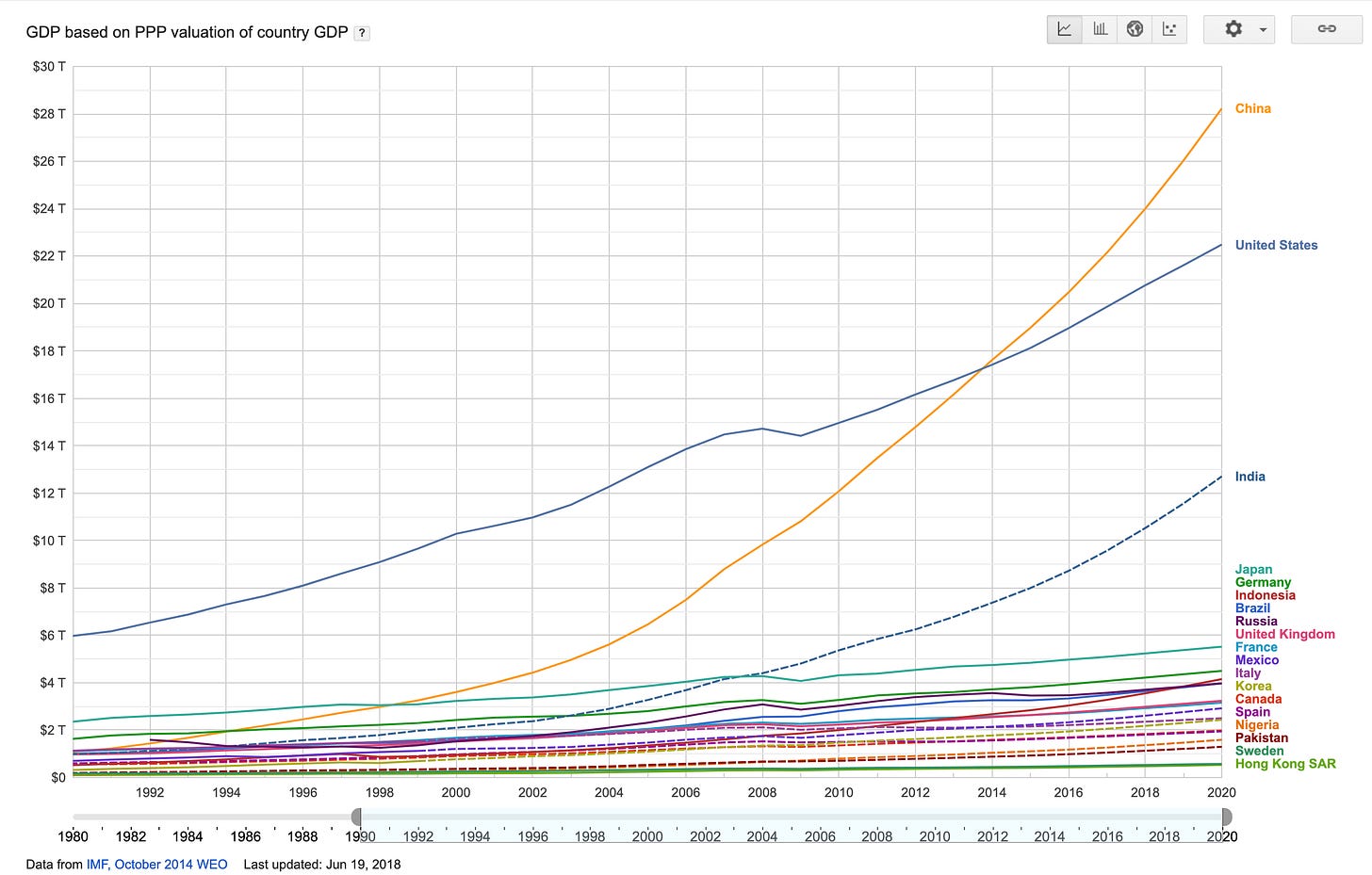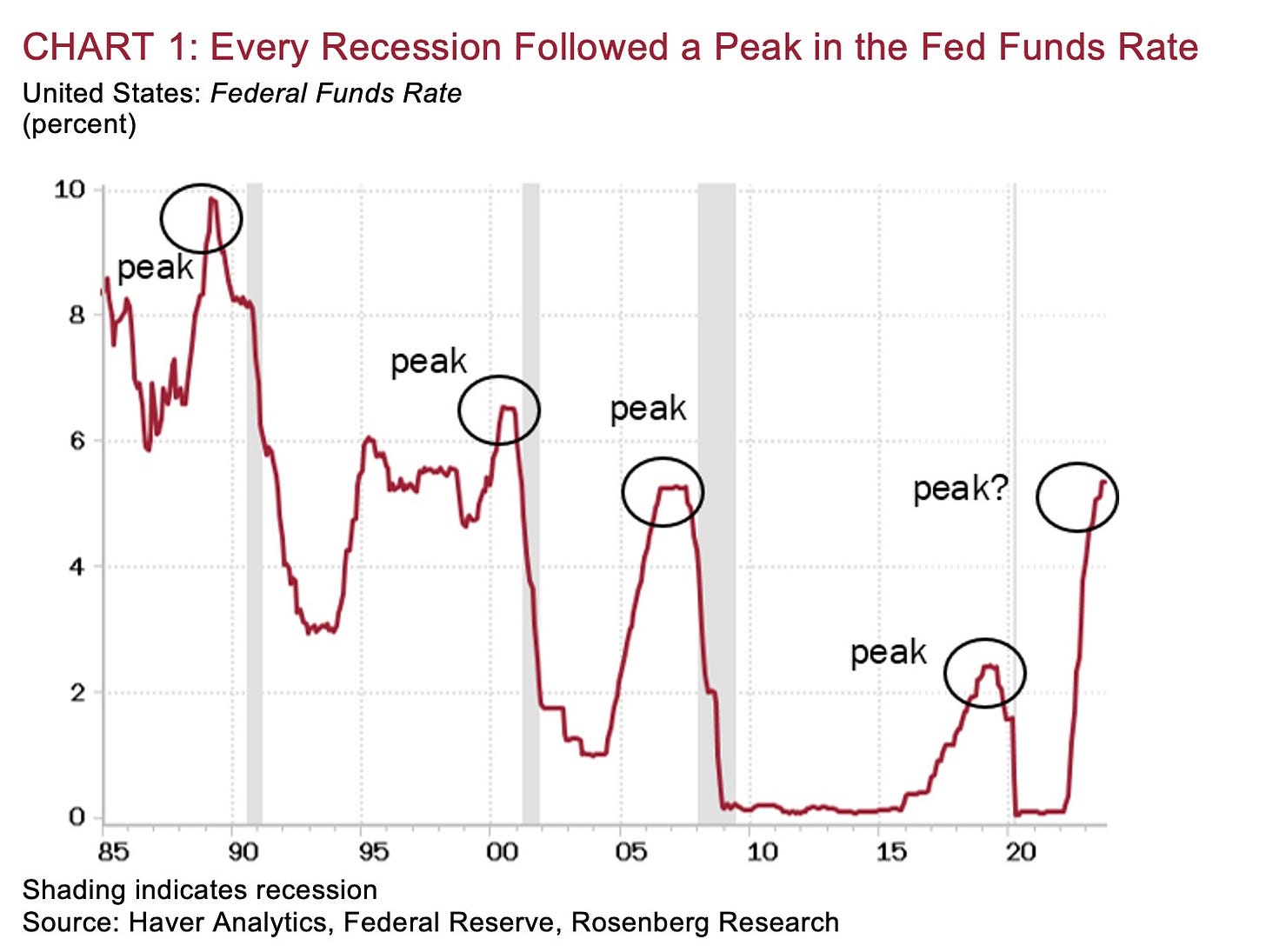Banana notes 3
Reading these notes should be as quick and easy as peeling and eating a banana
Ready, set, peel
India to potentially become the world’s next manufacturing hub. Looking at GDP growth adjusted for PPP below, India’s definitely on the rise. They for sure won’t be taking pole position as the world’s next superpower, so what role will India play?
This is interesting to me because of India’s neutral stance towards both China and USA.
If (and that’s a big if) India becomes the next manufacturing hub it will be an all-in or nothing due to economies of scale mechanisms. You can’t half-ass such a commitment, neither from India, USA nor China. India's neutrality is likely to result in an interesting position amidst the ongoing economic war between USA and China, and this will be key for future geopolitical control and influence. As a consequence of this economic war, India have an opportunity to develop dependencies with both countries.
Here’s how elaborated by Andrew Bustamante in a podcast he was guesting:USA and China both push for production in India due to economies of scale
Both countries will try to lobby for tariffs against the other in return for higher prices, India will say yes to both countries, installing tariffs in goods and commodities the respective country is critically dependent on India to produce
USA will pay India more if they put tariffs on plastic against China
China will pay India more if they put tariffs on steel against USA
Eat, sleep, repeat
Now, you might be thinking, why would any one of these countries settle for this? I’m not sure. One idea could be that efficient capital allocation is king; from a theoretical economical standpoint, our global economy seeks the most efficient allocation of capital. It is fundamental for developing and maintaining comparative advantages.
If we instead step back and try see it from India’s perspective, what’s the alternative? One would argue that a country with 1,4B population is organically biased to take on the role as next global manufacturing hub. The same question can be posed about Brazil, Vietnam and Malaysia, who are all more than willing to take on this role.
Economists, policy makers, lobbyists and politicians will have to calculate the next move but one thing is for sure: the global economy is here to stay, we’re all dependent on it. Embrace consumerism folks, it’s all we got.Swedish Riksbanken to keep interest as is at 4%
This is interesting to me because the moment they lower rates, the housing market prices will start increasing. There’s also the fact that Riksbanken piggybacks on ECB & FED.
From a socio-dynamic perspective, I’ve reflected on how friends and colleagues talk about economics in general. The sheer expectations on Riksbanken to lower interest rates worries me a bit. It’s almost as if everyone expects lowered interest as a default outcome. A close friend of mine pointed out an important observation the other day: there’s millions of parameters in the world of macroeconomics. Nobody can predict the future nor should that be my focus. Thanks for this Crajlo. Because I love visualisations, I’ll contradict his point with a graph that says everything and nothing, because who knows?



